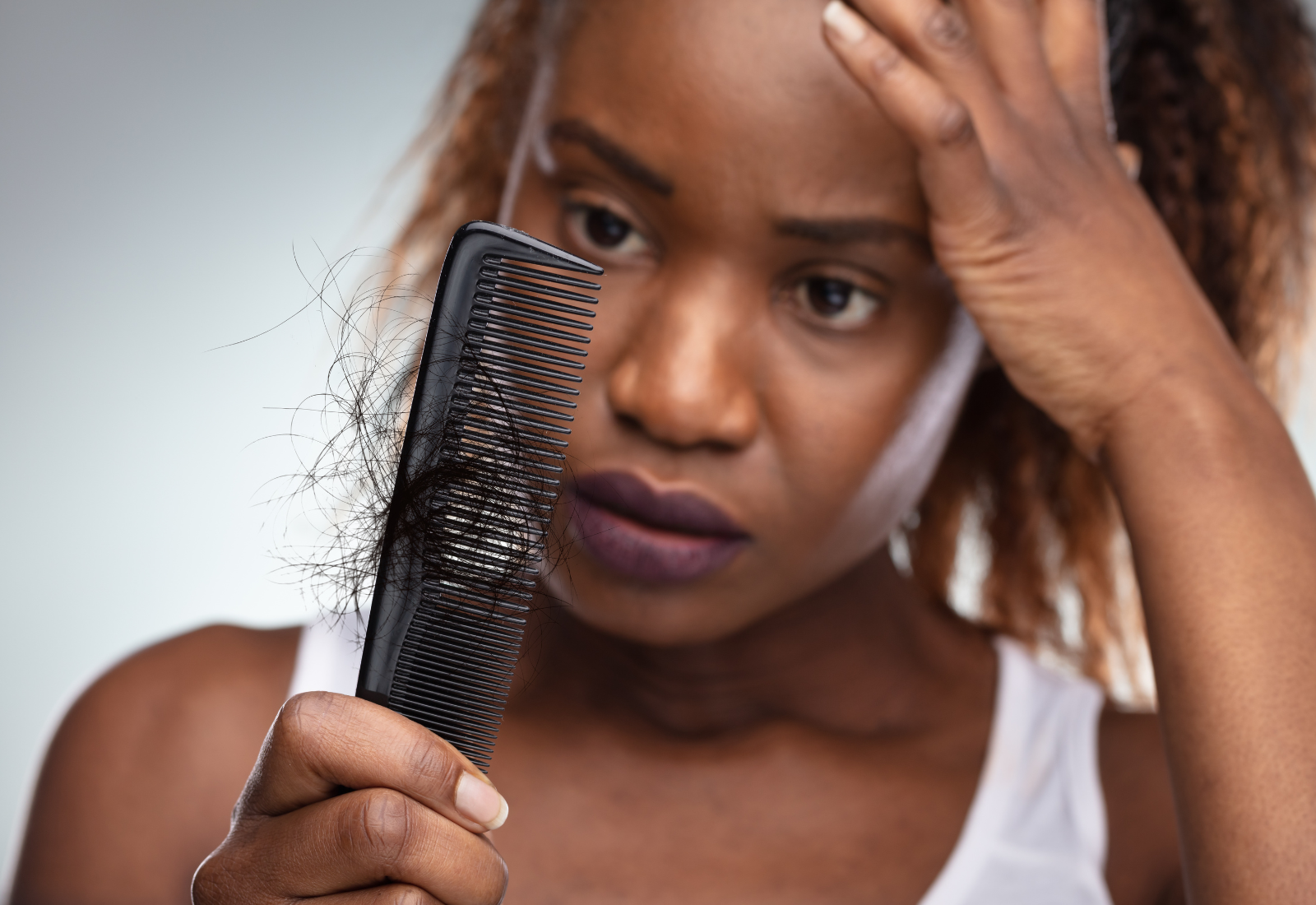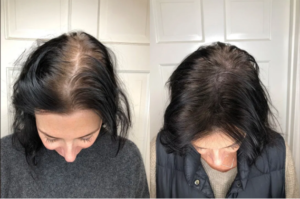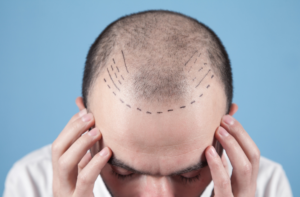When it comes to our physical appearance, few things hold as much significance as our hair. It’s a symbol of health, beauty, and vitality, and losing it can have a profound impact on our self-esteem and confidence. Hair loss is a common concern for many people. While genetics and hormones play a significant role, nutritional deficiencies should not be underestimated as contributing factors. Read on to learn more.
The Basics of Hair Growth and Loss
Before delving into the role of nutritional deficiencies, it’s essential to understand how hair grows and why it falls out. Hair growth is a continuous process that occurs in cycles, with each hair strand going through four main stages:
Anagen Phase
The anagen phase is the active growth phase of hair follicles. Approximately 85% of all hairs are in the growing phase at any one time. During this phase, hair can grow about half an inch per month, and it can last for several years. The length of the anagen phase is primarily determined by genetics.
Catagen Phase
After the anagen phase, hair enters the catagen phase, which is a transitional period lasting a few weeks. During this time, the hair follicle shrinks, and hair growth stops.
Telogen Phase
The telogen phase is the resting phase of hair growth. Hair remains in this phase for several months before shedding naturally. On average, about 10-15% of our hair is in the telogen phase at any given time.
Exogen Phase
The exogen phase is the final stage of the hair cycle, during which old hair is shed to make way for new hair growth. Shedding up to 100 hairs per day is considered normal during this phase.
Hair loss occurs when the balance between hair growth and shedding is disrupted. Various factors can contribute to this disruption, including genetics, hormones, medications, and, as we will explore in this article, nutritional deficiencies.
The Impact of Nutritional Deficiencies on Hair Health
Nutrition plays a crucial role in the overall health of our hair. When the body lacks essential nutrients, it often prioritizes vital functions over hair growth, leading to various hair-related problems. Here are some key nutritional deficiencies that can contribute to hair loss:
Iron Deficiency
Iron is essential for the production of hemoglobin, which carries oxygen to hair follicles. When the body lacks iron, hair follicles may receive insufficient oxygen, leading to weakened hair shafts and hair loss. Iron deficiency anemia is a common cause of hair thinning.
Vitamin D Deficiency
Vitamin D is essential for hair follicle cycling and hair growth. A deficiency in this vitamin can lead to hair loss, as well as other skin and scalp issues. Spending time in the sun and consuming vitamin D-rich foods can help address this deficiency.
B-Vitamin Deficiencies
B-vitamins are crucial for hair health. Biotin, in particular, is often associated with hair and nail growth. A deficiency in any of these vitamins can lead to hair thinning and loss. Examples of B-vitamins include:
- Vitamin B1 (Thiamine)
- Vitamin B2 (Riboflavin)
- Vitamin B3 (Niacin)
- Vitamin B5 (Pantothenic Acid)
- Vitamin B6 (Pyridoxine)
- Vitamin B7 (Biotin)
- Vitamin B9 (Folate or Folic Acid)
- Vitamin B12 (Cobalamin)
Protein Deficiency
Hair is primarily composed of a protein called keratin. Without an adequate supply of protein in the diet, the body may prioritize other essential functions over hair growth, resulting in weaker hair strands and potential hair loss.
Zinc Deficiency
Zinc plays a vital role in maintaining the health of hair follicles. A lack of zinc can disrupt the hair growth cycle and lead to hair loss. Additionally, zinc deficiency can result in dry, flaky skin on the scalp.
Omega-3 Fatty Acid Deficiency
Omega-3 fatty acids are known for their anti-inflammatory properties and are crucial for overall scalp health. When the scalp is inflamed, hair follicles can become damaged, leading to hair loss. Signs of Omega-3 fatty acid deficiency include:
- Dry, rough, or flaky skin
- Dry and brittle hair
- Dull or lifeless hair
- Excessive dandruff
- Slow hair growth
- Brittle and weak nails
- Dry and itchy scalp
Diagnosing Nutritional Deficiencies and Hair Loss
If you suspect that nutritional deficiencies might be contributing to your hair loss, it’s essential to consult with a healthcare professional or a hair loss expert. They can perform tests to determine whether you have any deficiencies and provide guidance on dietary changes or supplements to address them. Here are some common diagnostic tools and symptoms associated with nutritional deficiencies:
Blood Tests
Blood tests can assess your iron, vitamin D, B-vitamin, and zinc levels. Based on the results, your healthcare provider can recommend appropriate interventions.
Hair Analysis
Hair analysis can reveal mineral imbalances and nutrient deficiencies over an extended period. This test can provide insights into your hair health and guide nutritional recommendations. The best hair loss clinics offer free hair analyses to help clients determine the underlying problem and tailor the best hair restoration services.
Symptoms to Watch For
Common symptoms of nutritional deficiencies related to hair loss may include:
- Excessive hair shedding, often noticeable when combing or washing hair.
- Hair thinning, resulting in decreased hair volume and coverage.
- Brittle and easily breakable hair strands.
- Slow hair growth, leading to difficulty in achieving desired hair length.
- Dry and dull hair, lacking shine and vitality.
- Sparse or receding hairlines in some cases.
- Scalp dryness or flakiness.
- Changes in hair texture, such as increased coarseness.
- Increased susceptibility to hair damage and split ends.
- Changes in hair color or premature graying, although this can also be influenced by genetics.
- Hair that is more prone to tangling and matting.
The Importance of Professional Intervention
While improving your nutrition and lifestyle can contribute significantly to hair restoration, it’s essential to seek professional guidance for severe or persistent hair loss. Nutritional deficiencies are just one of many potential factors contributing to hair loss, and a healthcare provider or a hair loss expert can help you identify and address the underlying causes effectively. Additionally, they can recommend personalized treatment plans, advanced hair restoration procedures, or non-surgical solutions tailored to your unique needs.
In Conclusion
Nutritional deficiencies can significantly contribute to hair loss, but the good news is that many cases of hair loss due to deficiencies are reversible. By identifying and addressing these deficiencies through proper nutrition and professional guidance, you can take significant steps toward restoring your hair’s health and vitality.
Contact Eldorado
If you’re struggling with hair loss in Baltimore, don’t hesitate to reach out to Eldorado. We are known for offering Baltimore’s best hair restoration and replacement services. Our team of hair loss experts is dedicated to helping you regain your confidence and achieve your desired hair goals. Contact Eldorado today and take the first step towards a healthier, more vibrant head of hair.





